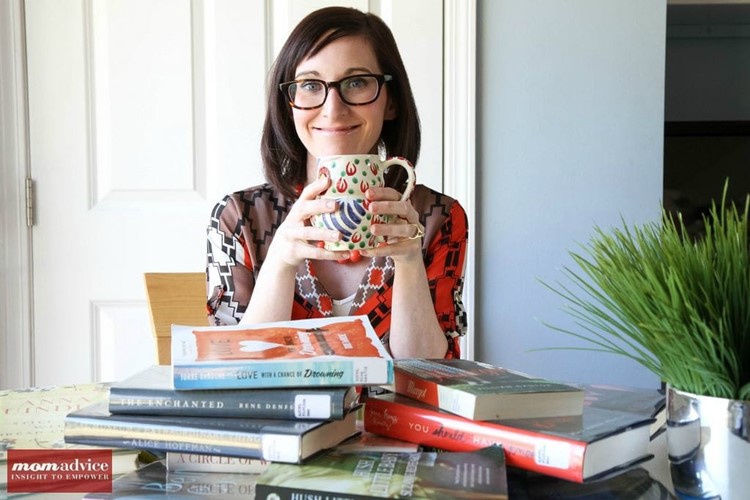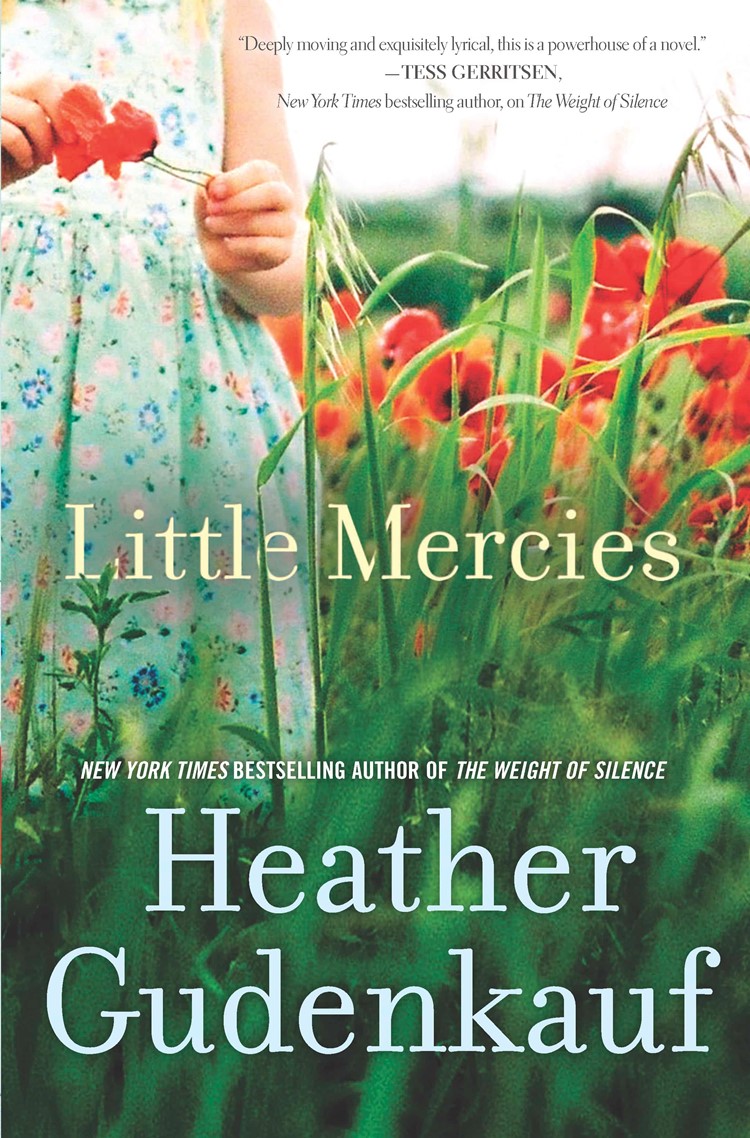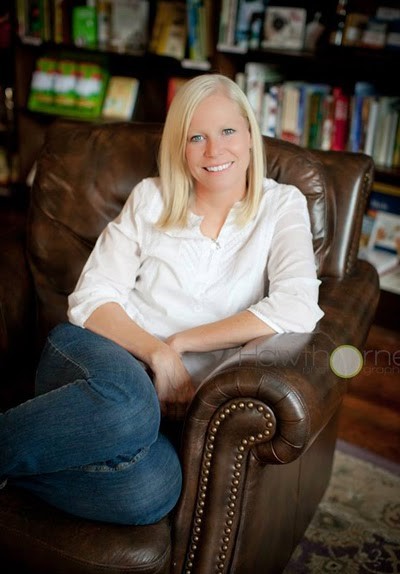
I have been a huge fan of Heather Gudenkauf since her first book, The Weight of Silence and had been looking forward to her next book so very much. When her publicist reached out to me about reviewing her new book, Little Mercies, I jumped at the chance…and also begged for an interview with Heather for our Sundays With Writers feature. If you can believe it, Heather agreed and I quickly devoured her book on our family trip to Columbus.
I was expecting another suspense-filled thriller that would leave me guessing whodunit- a quick escape from my daily life. From the opening pages though, I began to realize that this book was a swift departure from that , although it was equally thrilling and gripping.
I was unprepared.
Unprepared for the waves of emotion I was to experience and unprepared to go on this journey with this mother in this book. Yet, I had to see it through, and I felt like I could breathe again once I closed the pages. I also hugged my kids tightly that weekend and was reminded how easily these gifts can be taken from us. It’s that kind of book.
It’s the perfect type of book for a robust book club discussion and you can print out this handy book club kit for your club that offers some great thought-starters for your group’s discussion. You can also sink your teeth into the prequel to this book, Little Lies, although Little Mercies can be read on its own too.

Little Mercies builds on a well-developed premise- what if you were suddenly put in the shoes of someone that you once judged? The difference in this plot is that it is a social worker, who once was the judge of other parents, who makes an honest and life-altering mistake, and is now the one who must be judged as a parent.
Told in alternating points of view from an abandoned child who is quite familiar with the social worker setting and the viewpoint of a mother who is about to lose it all in the system that she has worked so hard to uphold.
It is heart-wrenching and very real, illustrating some of my worst nightmares as a parent, weaving the two stories of these people together beautifully.

Photo Credit: Morgan Hawthorne
Little Mercies seems to be a bit of a departure from your past books that I felt were more in the thriller genre of reading. That is not to say that I wasn’t on the edge of my seat the entire book, but just that this seemed like a situation that I could find myself in as a mother. How did you decide upon this idea of placing a social worker in a setting where she, herself, might be accused of child endangerment?
I got the idea for Little Mercies after hearing about a social worker who found herself on the other side of the legal system due to an overextended caseload. From there I began to ask what if? What if the social worker was a mother? What if the social worker mistakenly places her own child in harm’s way? I think the fact that anyone of us could find ourselves in Ellen’s shoes is one of the aspects of Little Mercies that makes it so compelling. As an author I am intrigued by exploring these difficult circumstances and the raw emotions that accompany them.
I also made sure to carefully research the novel by visiting with experts in their various fields. I spent quite a bit of time with a very dedicated social worker who shared the challenging task of separating home and work lives. I talked to doctors and EMTs regarding the medical complications that arose from the severe heat stroke that Avery endured. I met with an attorney who was able to describe the possible legal implications for Ellen and even took a tour of a local police station and learned about the booking process. This helped inform the novel.
When Ellen’s mother tries to comfort her by illustrating an example of something she did wrong as a mom, she says “I guess what I’m trying to say is that we all have our moments. We all have those times when we turn our backs, close our eyes, become unguarded. I don’t know why (my situation) ended up being okay and other children don’t….”
As a mom it made me reflect on a time when my son was small, had just learned to roll, and managed to roll right down the basement steps. He was fine, but I was completely a wreck, and I worried what the doctor thought of me when I took him in. Did you have any moments when you let down your guard like this as a mom, that you were able to reflect on while writing and shaping this story?
Most definitely! When my oldest child was a year old I buckled him into his high chair and gave him a handful of Cheerios to munch on. I thought I’d just dash out to grab the newspaper and ended up locking myself out the house. I could see my son chomping away happily on his breakfast through the large kitchen window but had visions of him choking on a Cheerio or slipping from the safety strap and falling to the ground. I stood there helplessly for a few minutes and then broke a window so I could let myself into the house. I felt like a horrible mother. I think as parents we all have had those close calls that make us question our own parenting abilities and agonize over what others will think of us. Fortunately, most often, when these accidents occur, all ends well.
There were many times that I had to step away from the book because the situation with Avery being left in the hot car is one of my worst nightmares as a mom. Did you struggle writing these scenes? Is there a detachment process when you write or do you dive in and experience it all?
These scenes were incredibly difficult for me to write. I’m first and foremost a mother and there is nothing worse than seeing your child in pain and suffering. As I wrote, I experienced every single excruciating moment right along with Ellen. I think that in order to write such dramatic events in an authentic, genuine manner, it was important to become fully immersed in what Ellen was going through. I often had to take breaks while writing these scenes. I would step away from the computer, go check on my own three teenagers, count my blessings and then return to work.
Little Mercies refers to the “small kindnesses and good that comes from terrible.” Have there been any “little mercies” in your own life that have been good in spite of the terrible that they came from?
More than I can count. Just over five years ago my son was diagnosed with bone cancer. So many emotions flood over you when the doctor utters that small six-letter word. We were shocked, terrified, devastated. Never have I felt so helpless. But something amazing began to emerge from all the heartbreak—our family, friends, community and complete strangers inundated us with simple, loving gestures that carried us through a very difficult, dark time.
It was the phone calls, the emails and the handwritten notes of support that let us know we weren’t alone during a very lonely time. It was the homemade meals delivered to our home when we didn’t have the energy to cook for ourselves. It was those individuals who took my daughters under their wings and paid extra attention to them when so much focus was on their brother. It was the group of seventh-grade boys and their teachers who shaved their heads in solidarity with one young boy facing an uncertain future. All of this allowed us to witness firsthand the selflessness of others.
So often we look for the big miracles, and we don’t always realize that the small ones are just as life changing. I’m thankful that my son is healthy, happy, doing great and looking forward to everything that life has to offer him. We carry all the kindnesses people have shown with us and try to do the same for others.
Can you describe your writing process? Where do you write and how do you begin shaping your books?
I don’t have a specific place in my home where I write. I tend to take my laptop and move to a room in the house where I can be alone. Not that I need complete silence to work; I actually like background noise. I’ll listen to music, a podcast, or even a TV show as I write.
I think through a writing idea for a very long time before putting pen to paper. I always begin my writing projects by buying a brand new journal or notebook and writing the first fifty pages or so in longhand. By beginning my novels this way I find that I’m able to find the unique voices of each of my characters. I will jot down my characters’ physical descriptions, histories, likes, dislikes, hopes and fears. I live with the characters for so long that sometimes my hands hover over the keyboard and I have to decide which direction to take them—and it’s not necessarily the journey I envisioned for them. Though I must say, it’s always an adventure!
If you could tell anyone to read one book (other than your own) what would that book be?
My favorite book of all time is My Antonia by Willa Cather. My parents always had hundreds of books on shelves and in neat stacks around the house and for a long time I passed right over the thick novel with the illustration of a woman standing in a field of tall yellow grass and holding freshly picked wildflowers. I finally pulled it from the shelf when I was eighteen and immediately fell in love with Cather’s beautiful description of turn-of-the-century Nebraska and the lifelong friendship between a farm boy and a young Czech immigrant. I reread My Antonia every single year, each time with new eyes, always finding something new within the pages. Whenever I visit a bookstore I’m always on the search for a different edition of My Antonia to add to my collection.
You can connect with Heather Gudenkauf on Facebook or on her website or even on GoodReads! I’m always thankful for these moments with writers and I hope you will pick up this amazing book! You can always connect with me on GoodReads,through our books section of our site, and you can read our entire Sundays With Writers series for more author profiles. Happy reading, friends!
*This post contains affiliate links!
Pin It